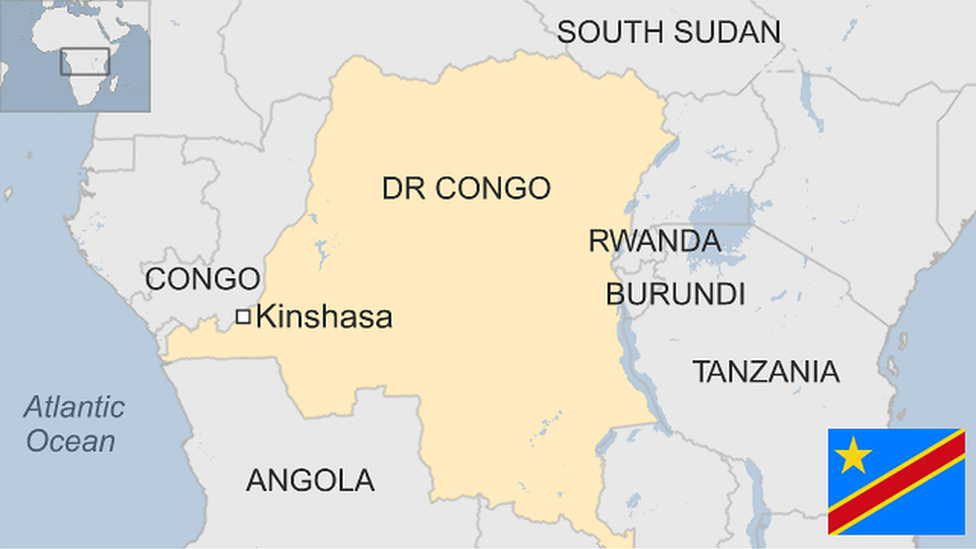DR Congo displacement crisis 'worse than Middle East'
- Published
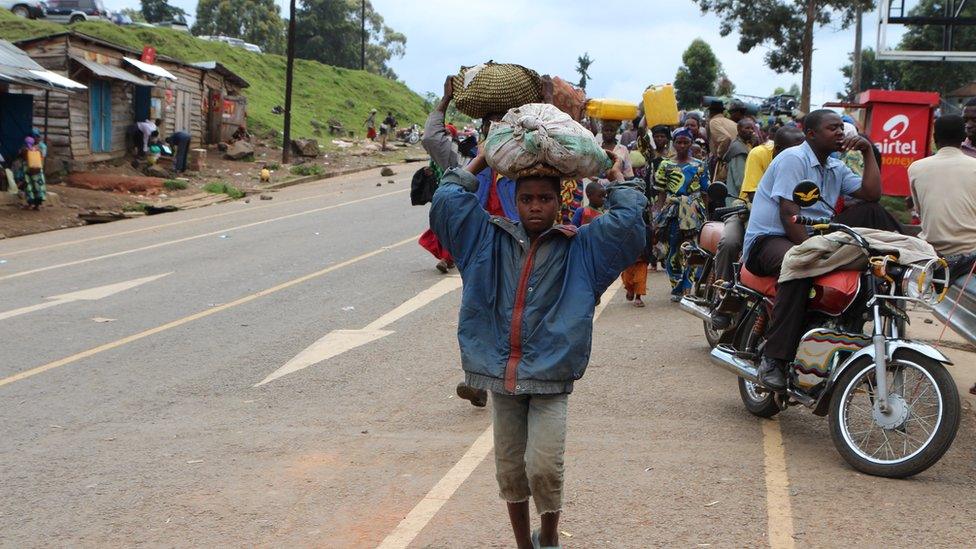
More than seven million people are struggling to feed themselves, aid workers say
Conflict has forced 1.7 million people to flee their homes in the Democratic Republic of Congo this year, causing "a mega-crisis", aid agencies say.
This means that for the second consecutive year, DR Congo is worst-affected by conflict displacement in the world, the agencies add.
DR Congo has been hit by years of instability, with rival militias fighting for control of territory.
The conflict has been worsened by the failure to hold elections last year.
"It's a mega-crisis. The scale of people fleeing violence is off the charts, outpacing Syria, Yemen and Iraq," the Norwegian Refugee Council's DR Congo director, Ulrika Blom, said.
In a new report, the Internal Displacement Monitoring Centre said that an average of 5,500 people fled their homes every day this year.
The reasons include new armed conflicts, a rise in existing conflicts and the delay in holding elections, the report said.
Despite there being four million displaced people, as well as more than seven million struggling to feed themselves, international aid has been slow to materialise, Ms Blom said.
"If we fail to step up now, mass hunger will spread and people will die. We are in a race against time," she warned.
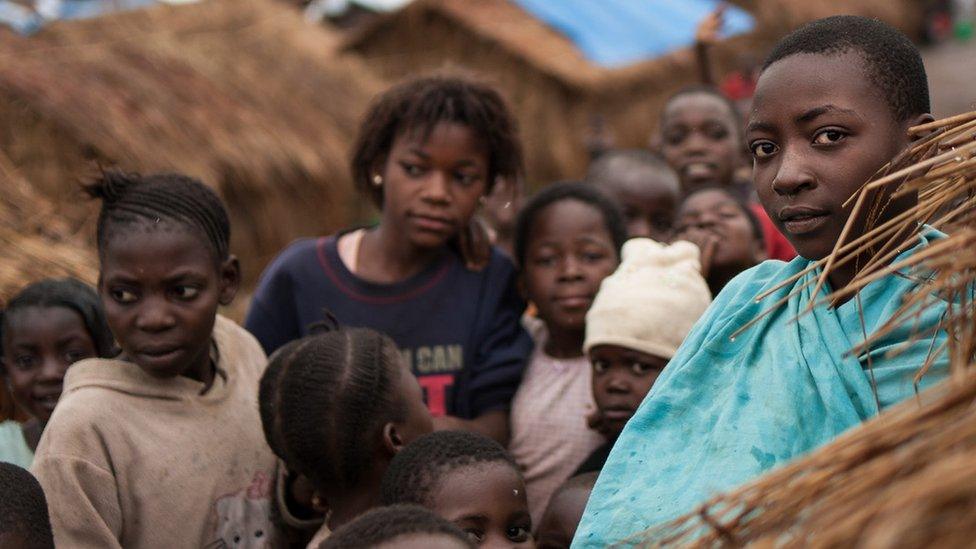
Many parts of DR Congo are lawless
DR Congo's Minister of Information, Lambert Mende, has however disputed the aid agencies' report, saying that the number of the displaced people is "less than one million".
He told BBC's Focus on Africa programme that the displaced people were, contrary to the report, returning home from neighbouring countries.

World has neglected DR Congo
By James Copnall, BBC News
The number of displaced people is shocking - even if it is disputed by the government.
Local conflicts in several parts of the country - in particular the new crisis in the greater Kasai area - are all rumbling on as a gruesome backdrop to the national crisis over elections and whether President Joseph Kabila will leave power.
The world hasn't been paying much attention.
In part this is because these are difficult places to report from, and news agencies and TV channels with global reach don't have many correspondents in the country.
Rightly or wrongly, DR Congo is not considered to have the same global strategic significance as, say, Syria.

DR Congo is a vast country with immense economic resources, but years of conflict have led to most people living in poverty, and there is little infrastructure.
President Joseph Kabila took power in 2001 following the assassination of his father, Laurent Kabila.
He has won two elections and the constitution bars him from running for a third term.
Mr Kabila's critics say the poll has been delayed so that he can remain in office.
Mr Kabila's government has been battling new conflicts in the last year, including in the central Kasai region where violence broke out after the government refused to recognise a traditional chief.
At least 400 people have been killed in the conflict in the region, which is regarded as an opposition stronghold.
- Published25 September 2017
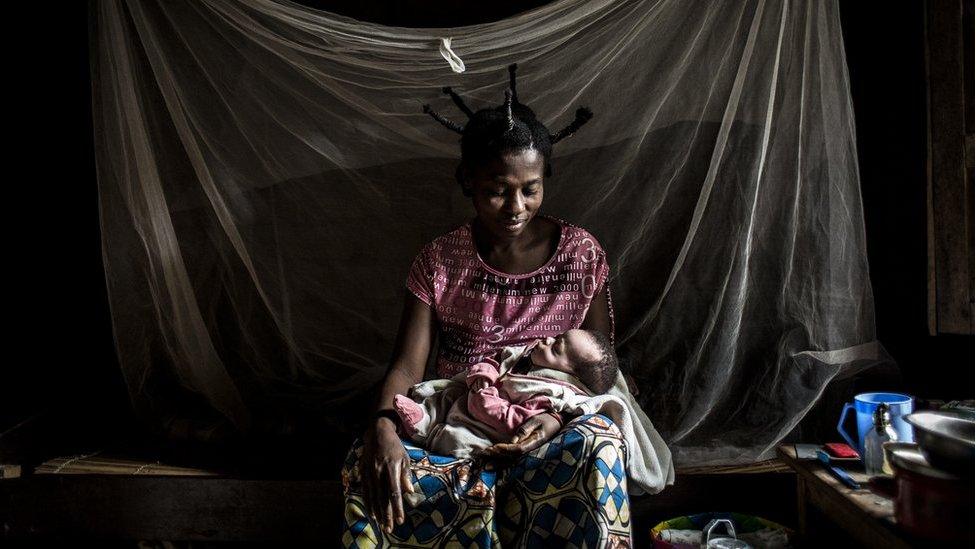
- Published24 April 2017
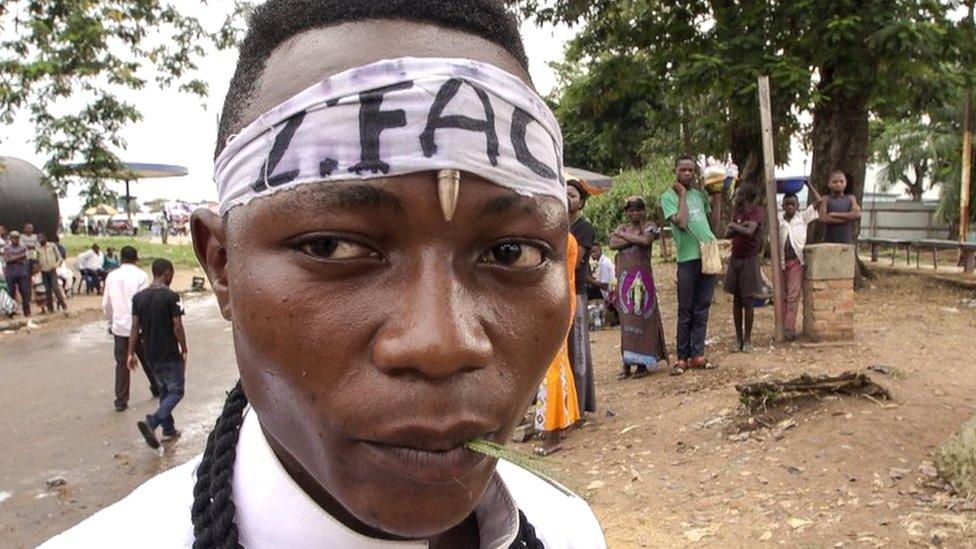
- Published9 October 2013
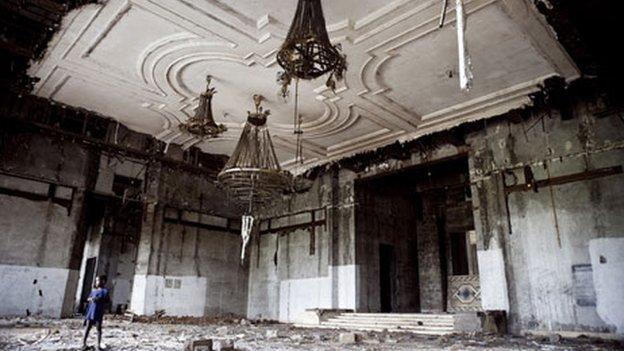
- Published21 September 2016
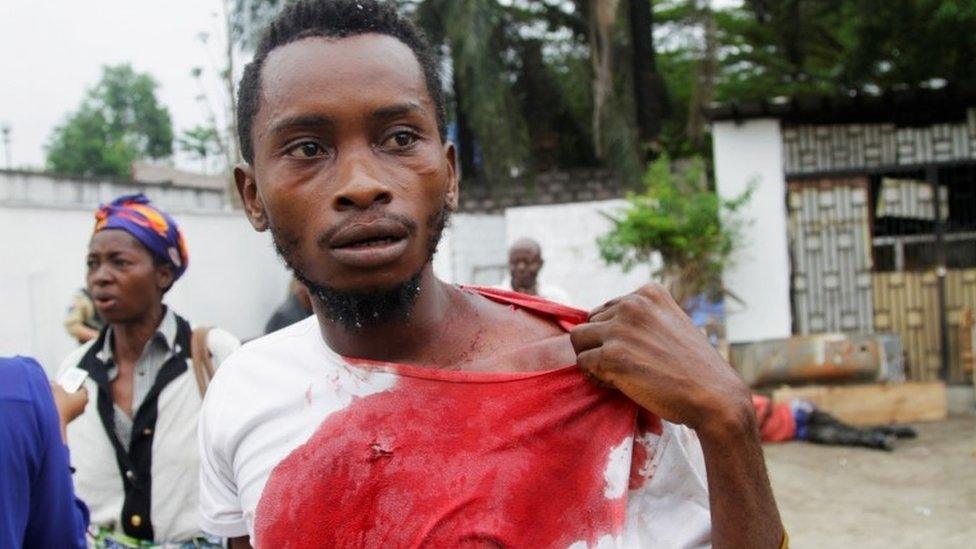
- Published31 January
